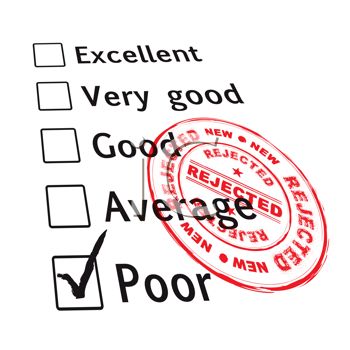Consider this scenario: an employee has bad time keeping, periods of absence and repeated sickness, they find it difficult to focus, they shy away from taking the lead and sometimes they inexplicably leave meetings and struggle to complete projects. They might not attend team events, or leave early seemingly disengaged, they take change negatively and their productivity is below that of their colleagues. Yet they clearly are a very intelligent person, when they are engaged they are a top performer, they are well respected and highly regarded for their knowledge and past performance.
Many would be sympathetic to a business placing the above specimen in a performance management process as they are entitled to do. But I would argue that the conditions described here exemplify someone suffering from a mental health condition, be that anxiety, depression or another mental disorder. Performance management or any other reaction that suggests the person has choice and control is not only counter productive, but also professionally dangerous.
“Mental ill health does not equate to poor performance… employers are losing a lot of talented workers due to a failure to effectively manage mental ill health”https://www.personneltoday.com/hr/the-law-and-mental-health-in-the-workplace/
So knowing that all the above are signs of mental illness in the workplace, is it wise to:
- Have such a person go though a stressful, reflective performance appraisal where they are asked to regurgitate all of the things that have caused stress over the last 12 months?
- Is it advisable to subject them to the instability of constant change: manager, structure, division, culture or direction? Even if business necessitates these top down changes, can some people be protected with stability?
- Is it astute to acknowledge there are pressures from life outside work but provide no help, support or even mild in-work adjustment such as a break or a workload reduction? When focus is purely on the bottom line, it cannot be on employee well-being as well can it?
- Perhaps worst of all – is it prudent to treat such a person demonstrably as under-performing? Now this might not be in the form of disciplinary action, but in many other ways such as over-looked for promotion, excluded from travel and industry events, treated as a subordinate within the team structure or not rewarded and recognised.
Mental ill health has a profound effect on even the simplest everyday life, its impact is extensive and extreme, without any command or volition from the sufferer, so it stands to reason that they are inexorably condemned to struggle in their work too.
As someone who has suffered from mental ill health myself, I can say wholeheartedly that the battle is much harder to win once stress has passed it’s peak, burnout has been achieved and a clinical diagnosis has been pronounced, for me its all about prevention. The signs a person on the road to burnout exhibits are not individual and obscure, but explicit, definite and exposed to the public – if you know what to look for.
It’s easy for me to be a critic of course, but what do I suggest business does instead:
- Prioritise employee training to recognise the signs of mental ill health and teach the basics of early detection and stress management in yourself? And I don’t mean a once a year webinar during mental health awareness week, but every month of the year, every year from qualified people who know what they’re talking about.
- How many businesses have ensured that there is a fully trained mental health first aider on-site? If you can see someone is suffering from stress, there are physical and psychological symptoms that need to be addressed. Grabbing for caffeine or alcohol is not a solution.
- If an employee has decided to trust you enough to unburden themselves of their stresses – the wrong reaction is to put this down to negativity and dis-satisfaction. To write it off as attitudinal, someone venting or in search of conflict and to respond with “at the end of the day we’re in a business and we have to make money to be successful” or “don’t concern yourself with things that are above your pay-grade” or “you need to toe the company line more”. These are all things said to me whilst I was under extreme stress.
- Imagine a work environment that is built on a culture of ambition, competition, win at all costs, chasing the numbers every quarter, where those who burn the candle at both ends are rewarded with promotion, bonus, reward and recognition. Now think how easy is it for an employee to openly admit they are finding their current workload too much – to put all of that reward and recognition at risk by being seen as weak and incapable? Now consider whether your place of work has a culture like this and whether it needs to change?
“Business leaders should recognize that most of what shapes health happens outside of encouraging healthy behaviors. Leaders need to improve the conditions so that employees are able to make healthy choices.”https://www.payscale.com/compensation-today/2018/07/employee-wellbeing
Thankfully the modern workplace is changing, thanks to the efforts of philanthropic individuals who want to see a change in corporate culture and are willing to help lead it, but there’s a long way to go.
Thomas O. Davenport recently wrote an excellent book entitled “The Stress-Reduction Pyramid: A Guide to Managing the Greatest Threat to Employee Health and Productivity” in which he exposed the stark difference between which workplace stressors have the greatest impact in the eyes of employers vs. employees. Rated from 1 to 12, 1 being the most impactful, I think it makes for very interesting reading.



